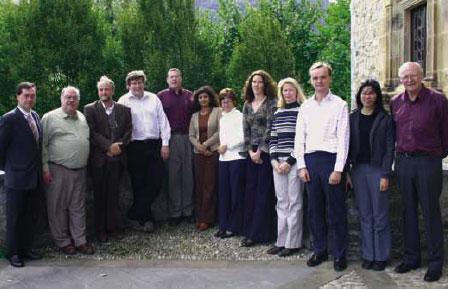Co-op Management Master’s Degree Program: Lessons Learned

The Master of Management—Co-operatives and Credit Unions program (MMCCU) based at St. Mary’s University in Halifax, Nova Scotia, will graduate its first class of students in April 2007. Program students, most of them senior managers of major cooperatives and credit unions, come from around the world. After a jam-packed orientation week in Halifax, they telecommunicate constantly with one another from home and work for a bit over three years.
In mid-program each class reunites for an intensive study tour to a
co-op “epicenter” such as Mondragon in Spain, the United Kingdom’s Co-operative Group matrix, or the Emilia Romagna region of Italy. They speak enthusiastically and warmly about the relationships that are developed through participation in the program, citing unexpected personal and professional benefits they’ve received. (For interviews with many of these students go to www.smu.ca/mmccu.)
The accredited degree program, unique in the English language, was developed through a partnership between the Co-operative Management Education Co-operative (CMEC) and Saint Mary’s University. CMEC has more than 55 members worldwide, including CUNA, NCBA and National Co-op Bank. The program is managed by one of its creators, Tom Webb, formerly the Director of Cooperative Extension at St. Francis Xavier University in Antigonish, Nova Scotia.
Says Webb about the program, “Co-ops often don’t account for our other [than monetary] bottom lines. Where are the tools that let a co-op know if we’ve balanced our multiple bottom lines?”
Not that he thinks income is trivial. “I dislike it when I hear people say, ‘Co-ops aren’t about making money’,” he says, citing one of those co-op multiple bottom lines. “It’s dishonest. Otherwise, they’re bankrupt. The problem is, we either think about it from a consumer’s point of view—‘I want to pay the lowest cost’—or from the producer’s—‘I want to get the highest price.’ This doesn’t reflect the cooperative concept of interdependence.”
Tom Webb sums up his view of the future of cooperatives this way: “We need to ask what are the new, innovative thoughts that are even more consistent with our values? Where are the co-op values of ‘self-help’, ‘openness’ and ‘solidarity’ in the way we treat our workers?
“Some version of the stakeholder model is the solution—that’s the real cutting edge,” he concludes, painting a vision of a co-op board of directors composed of workers, consumers, and producers, where “every topic is discussed, where there is a basis of trust and no conflict of interest because everyone there represents the co-op. But the real key,” he adds, “is not to tell our master’s candidates what to think, but to have them think deeply about the issues that count in a successful co-operative business.”
The MMCCU requires about 114 weeks of classes, assignments and a major project that is linked to the sponsoring employer co-op or organization. The deadline for applying for the Fall 2006 course is May 31, 2006. Call 902/496-8170 or 902/863-0678 or visit www.smu.ca/mmccu.
***
Jane writes about all sectors of the cooperative economy ([email protected]).







